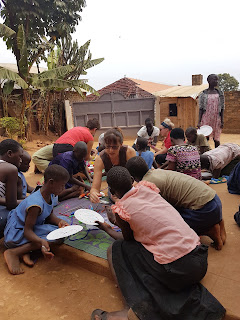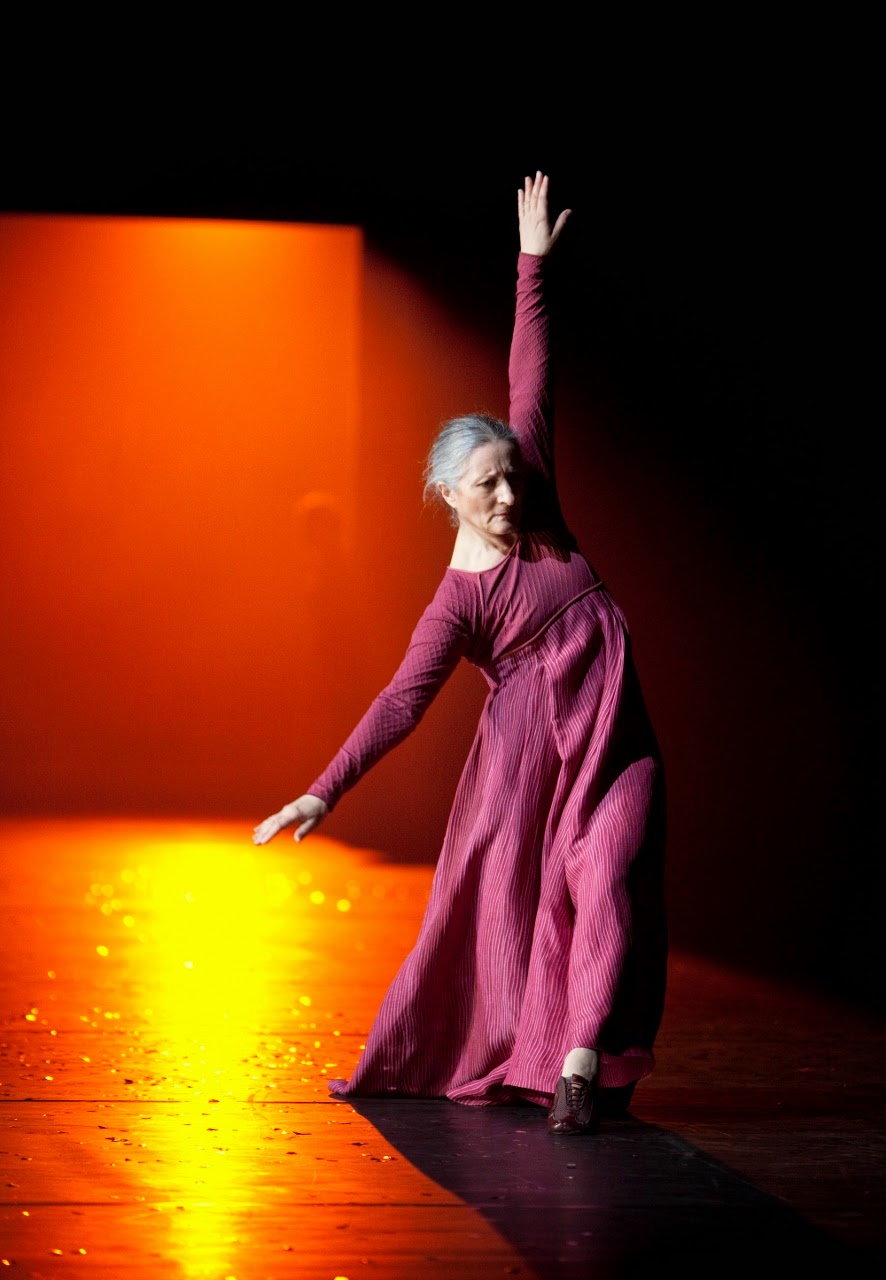Day 20 (Tuesday 20th December 2016)
It gives me a great pleasure to host this blog, written by Donna Hewitson. She is an amazing lady with whom I had the privilege of sharing a room when we were both in Uganda, as part of Connecting HR Africa this September. Donna is an award winning HR professional (she picked up the BII's National Innovation in Training Award - Professional Trainer of the Year 2016). Donna is an independent People Consultant and the Director of People Stuff Matters. She writes interesting blogs (on life, travels and work) - both her Twitter handle (@PubDonna) and her blog (PubDonna.com) indicate her career roots. She has a passion for hospitality and leisure and an exceptional talent for knowing what needs to be done to make a business and the people within it thrive.
We heard their reasons for running away:
With the staff, we used our skills to deliver personal effectiveness sessions to all of Retrak’s centre teams. This was followed by leadership development and coaching for the senior team:
 |
20-month survey of the planet Jupiter to be undertaken by
the Juno (the NASA spaceprobe), which entered the planet's orbit on July 5th 2016.
Juno's mission is to measure Jupiter's composition, gravity field, magnetic
field and polar magnetosphere as well as trying to determine how the planet
was formed.
|
It gives me a great pleasure to host this blog, written by Donna Hewitson. She is an amazing lady with whom I had the privilege of sharing a room when we were both in Uganda, as part of Connecting HR Africa this September. Donna is an award winning HR professional (she picked up the BII's National Innovation in Training Award - Professional Trainer of the Year 2016). Donna is an independent People Consultant and the Director of People Stuff Matters. She writes interesting blogs (on life, travels and work) - both her Twitter handle (@PubDonna) and her blog (PubDonna.com) indicate her career roots. She has a passion for hospitality and leisure and an exceptional talent for knowing what needs to be done to make a business and the people within it thrive.
As well as being an exceptional business woman, Donna is an inspirational person to be with and to learn from. If you want a master class in gins she is your woman (I know thanks to an impromptu gin tasting at Gatwick airport, when our flight was delayed by four hours). If you want a masterfully designed and delivered piece of training that resonates with all attendees, she can do it. If you just want to chat, mull over an issue and put the world to rights, there is nobody better. This year she has made me laugh, helped me cry and encouraged me to think. As you will see from her below post, Donna has not had a conventional route to her now very successful career. However, it is usually those who are comfortable being different who have the capacity to really stand head and shoulders above the rest of us.
************************************
Full hearted
In 2015 I achieved my career dream. After 20+ years of working my arse off, I had reached the heady heights of the position I coveted most. I had so many expectations of how it would be, how I would feel; all of them wrong.
How could this be? Everyone I knew who did a similar job seemed so content, happy in their work, fulfilled. Why did I not feel the same?
Over all these years, I thought that when I had reached the top of my professional ladder I would calm it down a bit. Less of the 60+hrs a week, more family time. More me time. That didn't happen either.
Over all these years, I thought that when I had reached the top of my professional ladder I would calm it down a bit. Less of the 60+hrs a week, more family time. More me time. That didn't happen either.
There was something missing.
But what? I have the best man in my life, we have a lovely house, the mortgage is paid off, we travel loads, have the most brilliant friends and we both have well paid jobs. Life is good. I am incredibly grateful for all we have, for all we have worked so hard for.
But still, I could sense a hollow inside.
Things were important to me. After a childhood in Foster Care and then being told I was ready to live "independently" from the age of 16, I've wanted so many things. Things I couldn't afford, things beyond my position in society, things that many took for granted, things I wasn't qualified for. As soon as I was able, I started to acquire all of the things I had dreamed about when I was fresh-faced into the big scary world.
Still, I wasn't complete.
Things were important to me. After a childhood in Foster Care and then being told I was ready to live "independently" from the age of 16, I've wanted so many things. Things I couldn't afford, things beyond my position in society, things that many took for granted, things I wasn't qualified for. As soon as I was able, I started to acquire all of the things I had dreamed about when I was fresh-faced into the big scary world.
Still, I wasn't complete.
In April 2016, unbeknown to me at the time, I applied to be a part of something life-changing. I applied to join the Connecting HR Africa team for a week of volunteering to use our professional skills to coach, develop and train the leadership team of a magnificent charity, Retrak, to enable them to be better equipped to make a difference to the lives of street children in Kampala. There were so many reasons why I applied and I blogged about them back then.
What did we do in Kampala that filled the gap in my heart?
With the children, we:
- Played
- Played some more
- Read stories, comics and heard songs they had written
- Made masks, drew pictures, made loom bands, coloured in books
- Chatted about anything and everything
- Listened
- Helped with the cooking and serving of lunch
- Participated in a big outreach to street kids living around the slums; this involved social workers, outreach workers and us pairing up to approach the street children, interact with them, listen to their stories and understand how we could help them.
We heard their reasons for running away:
- Physical and emotional abuse. Being beaten by their mother or step-mother. Community Chiefs actively encourage beating children to instil discipline.
- Family breakdown. Father had two wives. Father had died and both wives were ran out from the village. There was no-one to look after this young boy. 12 years old, he was.
- Wanting an education. One boy wanted to go to school, learn enough, graduate and be a lawyer. A rich one. He wasn’t able to receive this education in his village and has run away to the city in the hope to get on a programme.
- Sexual abuse. Gang leader’s initiations involve the requirement to perform sex acts or have sex with the gang leader. If you do not conform, you are beaten incredibly badly. Sometimes the punishment is worse than a beating.
With the staff, we used our skills to deliver personal effectiveness sessions to all of Retrak’s centre teams. This was followed by leadership development and coaching for the senior team:
- Ian led on Resilience
- Amy & Lisa shared approaches for giving Feedback (a role play with Sophie and myself included)
Teamwork and Values-Based Leadership was delivered by Alice
- GROW Model facilitated by Kate
- I wrapped up the session demonstrating the impact of appreciation
We held
- 121’s
- coaching sessions
We made a sustainable difference to so many people during our week together and we formed bonds and friendships that will last forever.
I realised what was missing for me all these years. It wasn't enough to prove to others that I could achieve my dreams from a bit of a false start. It wasn't enough to fill my life with things. What I needed to do was help affect the quality of life for other people, to be there, listen, understand and guide, where I could, to assist in positive life choices.
Returning from Uganda, I continued volunteering and became the Ambassador for 3 more charities.
I realised what was missing for me all these years. It wasn't enough to prove to others that I could achieve my dreams from a bit of a false start. It wasn't enough to fill my life with things. What I needed to do was help affect the quality of life for other people, to be there, listen, understand and guide, where I could, to assist in positive life choices.
 |
| Donna had this tattoo done to commemorate her time in Uganda each star represents a member of the team who were with her |
Returning from Uganda, I continued volunteering and became the Ambassador for 3 more charities.


















.jpg)









